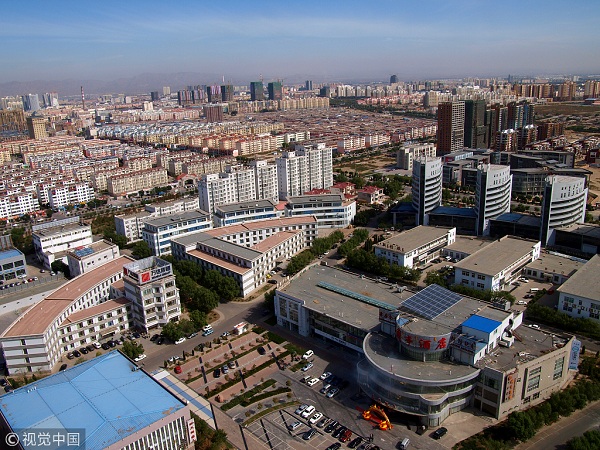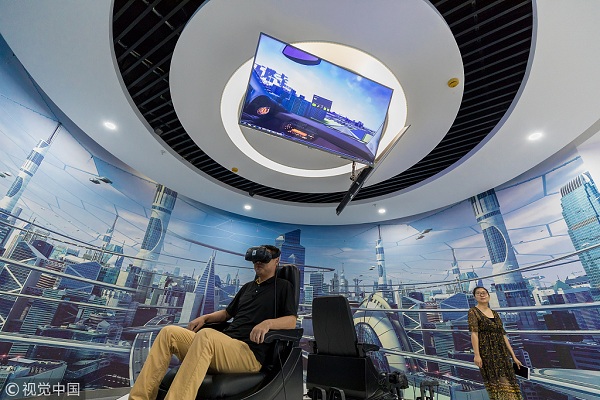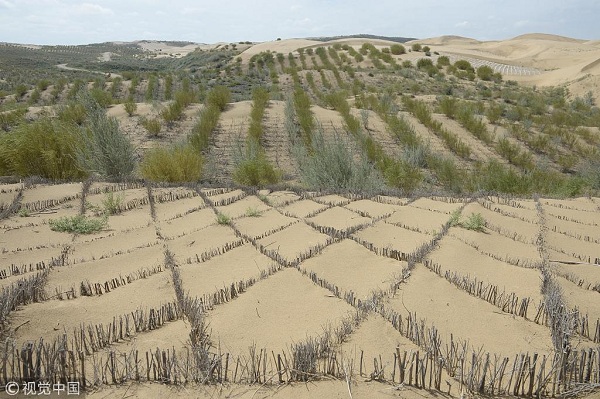Government rewards support economic development


Baotou Rare-Earth Hi-tech Zone in Baotou, North China's Inner Mongolia autonomous region [Photo/VCG]
The People's Government of Inner Mongolia autonomous region recently issued a series of reward measures with a focus on the development of six emerging industries, in a bid to promote the region’s high-quality development.
The six major emerging industries are new materials, biopharmaceuticals, electronic information, energy conservation, environmental protection and military-civilian integration. For more details for the six emerging industries, please refer to //www.chinaservicesinfo.com/a/201812/14/WS5c1343a0498ee2f0291e3d50.html .
A total of 30 reward measures were put forward in four categories: improvement in innovative capacity, expansion of effective industrial investment, support for growth of firms, integration of informatization and industrialization.

A resident experiences augmented reality (AR) glasses at a big data center in Yuquan district, Hohhot, the region’s capital, Aug 3. [Photo/VCG]

Desert willows planted in the Kubuqi Desert in northern Ordos Plateau are transforming the desert into a paradise for the development of tourism. [Photo/VCG]
In terms of the improvement in innovative capacity, financial support will be granted to all kinds of innovative platforms of firms, including technological, industrial and manufacturing platforms. Government subsidies will be granted to key projects introducing advanced technological achievements or state-of-the-art equipment, and clinical pilot projects for traditional Mongolian medicine or traditional Chinese medicine. Government rewards will be awarded to newly created or green products recognized by the central or regional government; and firms that launch generic consistency evaluation for drug safety.
To expand effective investment, rewards, subsidies and loan discounts will be enjoyed by manufacturing projects with investment to a designated amount. Rewards will also be granted to industrial parks with investment to a designated amount. Besides, specific funds have been founded to aid high-end and energy conservation projects. More funds for the region's industrial restructuring are being prepared.
To support the growth of firms, rewards will go to Fortune 500 firms and China’s top 500 firms that are based in the region; firms that realize major revenues surpassing a designated amount for the first time; and other firms and industrial parks with high-quality performance recognized by the regional government.
In the integration of informatization and industrialization, government rewards and subsidies will be granted to firms approved by the national standard system for the two parts’ integration; firms that have introduced industrial robots; and demonstration projects of smart manufacturing recognized by the national or regional government.
Other key elements mainly relate to government support in income tax reduction, flexibility in land transfers and preferential electricity prices.
In addition, 301 key projects with investment of 258.5 billion yuan ($37.5 billion) were selected to finish in three years, which is expected to add output value of more than 150 billion yuan and realize tax revenue and profits of 14 billion yuan and 20 billion yuan.
Other supporting policies and measures were also introduced with the support of scientific and technological departments and information and industrial departments in the region.







